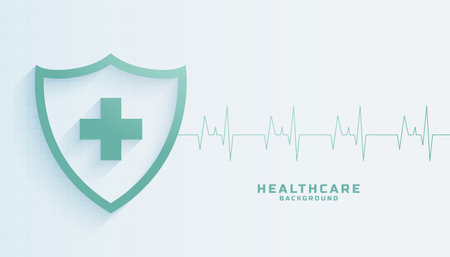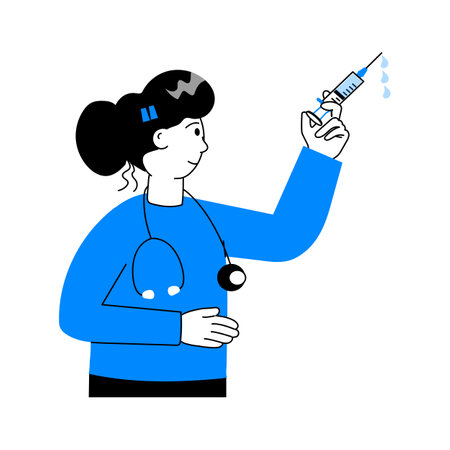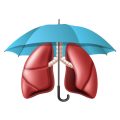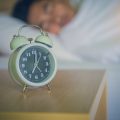1. Introduction: The Rise of Blue Light in Modern Britain
In recent years, digital screens have quietly woven themselves into the very fabric of daily life across the UK. From the office worker checking emails on a laptop in London, to students scrolling through social media in Manchester, and families enjoying evening television in rural villages, screens are everywhere. Whether for work, study, or leisure, our dependence on devices has grown steadily, making technology an inseparable part of British culture. Yet, as we embrace this digital era with enthusiasm and convenience, gentle questions are beginning to arise about the effects these glowing screens may have on our wellbeing. One area drawing increasing attention is blue light—the high-energy visible light emitted from phones, tablets, computers, and TVs—and its potential role in disturbing our natural sleep cycles. As a nation known for valuing a good night’s rest and mindful living, it’s worth pausing to consider whether our tech habits might be quietly reshaping how well we sleep.
2. How Technology Shapes Our Daily Routines
Across the UK, technology is deeply woven into our daily lives, shaping everything from how we work and socialise to how we unwind in the evenings. It’s not uncommon to see Britons checking their emails over breakfast, using smartphones to catch up with friends throughout the day, and settling down in the evening with a favourite series or a quick scroll through social media.
Evening Screen Use: A British Habit
Many households across the nation have adopted the habit of using digital devices during the later hours. Whether it’s catching up on the latest BBC drama, joining a virtual quiz night with mates, or browsing news updates before bed, screens are often part of our wind-down routine. This integration has become even more pronounced with the rise of remote work and online learning.
Technology at Work, Home, and Play
Tech use isn’t just about leisure; it’s also central to modern working life in Britain. Video calls, instant messaging, and cloud-based collaboration tools mean many of us remain connected to work long after office hours. Meanwhile, socialising has shifted too—group chats on WhatsApp or planning events via Facebook have become staples for keeping in touch.
Typical British Tech Habits: An Overview
| Activity | Common Devices Used | Time of Day | Cultural Notes |
|---|---|---|---|
| Work Emails & Calls | Laptop, Smartphone | Morning & Evening | Often checked outside office hours |
| Streaming TV & Films | Smart TV, Tablet, Laptop | Evening/Night | A popular way to unwind after tea |
| Social Media Browsing | Smartphone, Tablet | Throughout Day/Evening | Used for both news and social connection |
| Online Gaming & Virtual Quizzes | PC, Console, Smartphone | Mainly Evenings/Weekends | Became especially popular during lockdowns |
| E-Reading & News Updates | E-reader, Smartphone, Tablet | Mornings & Evenings | Migrated from print to digital formats |
This increasing reliance on screens reflects wider cultural trends in Britain—where convenience meets connectivity and technology is now a fixture in most aspects of our daily routines. As these habits evolve, it’s worth considering how they might be influencing our health and sleep patterns as a nation.

3. Understanding Blue Light: What Does Science Say?
Blue light is a type of visible light with a short wavelength, which means it produces more energy than other colours on the spectrum. While blue light naturally occurs in sunlight and helps regulate our sleep-wake cycle, or circadian rhythm, it’s also emitted by digital screens – from smartphones to laptops and televisions. In Britain, technology is woven into our daily lives, making it increasingly important to understand how this exposure might be affecting our wellbeing.
Leading UK-based studies, such as those conducted by the University of Manchester and University College London, have explored the biological impact of blue light, particularly in the evening hours. Their findings suggest that prolonged exposure to artificial blue light can suppress the production of melatonin – the hormone responsible for making us feel sleepy when night falls. This disruption to our natural body clock can make falling asleep more difficult and may even reduce sleep quality overall.
British experts like Dr. Victoria Revell, a chronobiologist at the University of Surrey, highlight that even modest amounts of blue light before bedtime can shift our circadian rhythms later, leading to groggier mornings and less restorative rest. For many across the UK who use devices late into the night, this scientific insight offers a gentle reminder: making mindful choices about screen time could support both our natural rhythms and our overall sense of wellbeing.
4. British Sleep Patterns: Are We Getting Enough Rest?
Sleep is essential for our wellbeing, yet many Britons find themselves struggling to get a good night’s rest. Recent studies and surveys paint a telling picture of sleep duration and quality across the UK, raising questions about the role of technology in these trends. According to The Great British Sleep Survey and data from the NHS, more than one-third of adults report experiencing insomnia symptoms at least once a week. On average, adults in the UK are getting around 6 hours and 30 minutes of sleep per night—falling short of the recommended 7-9 hours for optimum health.
UK Sleep Statistics at a Glance
| Category | Statistics |
|---|---|
| Average Sleep Duration (Adults) | 6 hours 30 minutes/night |
| Recommended Sleep Duration | 7–9 hours/night |
| Adults Experiencing Insomnia Symptoms Weekly | 36% |
| Youth (16–24) Sleeping < 7 Hours/Night | 42% |
| Adults Reporting Poor Sleep Quality Linked to Tech Use | 48% |
The Impact of Technology on Our Nights Rest
Emerging evidence suggests that our growing attachment to digital devices may be exacerbating sleep difficulties. A survey by YouGov found that nearly half of Britons check their phones or tablets right before bed, with blue light exposure from screens being a key culprit in disturbing our natural sleep-wake cycles. This artificial light can suppress melatonin production—the hormone responsible for making us feel sleepy—resulting in longer times to fall asleep and more frequent night-time awakenings.
Spotlight on Evening Habits in Britain
For many, winding down now involves scrolling through social media or catching up on TV shows via streaming services. While these activities offer comfort and connection, they may inadvertently disrupt our bodies’ readiness for restful slumber. When surveyed, British participants who avoided screens for at least an hour before bed reported notably better sleep quality compared to those who kept their devices close until lights out.
A Call for Mindful Tech Use Before Bedtime
The link between technology use and disrupted sleep is increasingly recognised by health professionals across the UK. Simple adjustments—such as reducing screen time in the evening, using “night mode” settings, or adopting calming pre-sleep routines—could make a meaningful difference in sleep quality nationwide. As we continue to evaluate our tech habits, taking gentle steps toward balance may help ensure Britain gets the restorative rest it deserves.
5. Natural Solutions and Everyday Habits for Better Sleep
Embracing a more natural approach to sleep can be a gentle way to counteract the effects of blue light and modern tech habits. Across Britain, many are rediscovering traditional routines and wellness tips that foster restorative rest. Here’s how you can weave these simple, nourishing practices into your evening to help improve sleep quality:
Mindful Tech Adjustments
First, consider setting boundaries with digital devices. Try implementing a ‘digital sundown’ by switching off screens at least an hour before bed—a tip inspired by the age-old British custom of winding down with a good book or quiet reflection in the parlour. If you must use technology late in the evening, engage your device’s night mode or use blue light filters to soften the glare.
Nourishing Evening Meals
What we eat in the hours leading up to bedtime can have a profound impact on our sleep. Opt for light, wholesome suppers—think oat-based porridge or herbal teas like chamomile, both cherished in British homes for their calming properties. Avoid caffeine and heavy meals late at night, as they may disrupt your natural sleep cycle.
Establishing a Calming Bedtime Routine
The rhythm of a consistent bedtime routine signals your body that it’s time to wind down. Popular British traditions such as a warm bath infused with lavender or Epsom salts, followed by slipping into fresh pyjamas and drawing the curtains, create a sense of comfort and security. These small rituals can help ease your transition from wakefulness to restful slumber.
Connecting With Nature
If possible, spend time outdoors during daylight hours—perhaps taking a stroll in your local park or garden. Exposure to natural sunlight helps regulate your circadian rhythm, making it easier to fall asleep when night falls. Even tending to houseplants or enjoying a cup of herbal tea by an open window can bring a touch of nature indoors, promoting relaxation.
By gently blending these natural solutions and everyday habits into your life, you’ll be honouring time-tested British wisdom while nurturing your wellbeing in our modern, tech-filled world.
6. Community Insights: Stories from Across the UK
Across Britain, conversations about blue light and its impact on sleep are growing, drawing together voices from all walks of life.
Everyday Experiences: From London to Liverpool
Take Helen, a teacher in Manchester, who noticed her restless nights coincided with late-night scrolling on her tablet. After switching to reading a paperback before bed, she found herself drifting off more easily and waking up refreshed. In contrast, Ben, a student in Bristol, shares how wearing blue light blocking glasses during evening revision sessions helped him fall asleep quicker and feel less groggy in the morning.
Expert Tips: British Professionals Weigh In
Nutritional therapist Samantha Clarke from Edinburgh recommends an evening routine that pairs herbal teas like chamomile or valerian root with a strict ‘tech curfew’ an hour before bedtime. She says, “Supporting your body’s natural wind-down is just as important as what you eat – both are part of good sleep hygiene.” Meanwhile, Dr. James Rowe, a sleep specialist in Birmingham, encourages his patients to embrace natural daylight in the mornings and limit screen time after sunset. “It’s about resetting your internal clock,” he notes.
Building Better Habits Together
These stories remind us that addressing blue light exposure isn’t about perfection but progress. Whether it’s adopting simple swaps like using ‘night mode’ on devices or enjoying a tech-free cup of herbal tea before bed, communities across the UK are supporting each other to prioritise better rest. By sharing our experiences and advice, we strengthen our collective commitment to healthier sleep – one mindful step at a time.
7. Conclusion: Embracing Balanced Tech Use for Healthier Nights
As we reflect on the digital habits shaping daily life across the UK, it’s clear that technology is here to stay—and so too are its benefits. Yet, when it comes to our sleep and overall well-being, a gentle and balanced approach is key. Embracing mindful tech use doesn’t mean abandoning our favourite gadgets or digital routines; rather, it invites us to weave healthy boundaries into modern British living.
By being conscious of blue light exposure in the evening, setting device-free moments before bedtime, and making small changes—like using night mode or enjoying a calming herbal tea ritual—we support not only more restful sleep but also a greater sense of well-being. These natural shifts allow us to enjoy the best of both worlds: staying connected while honouring the body’s need for restorative rest.
Ultimately, cultivating a positive relationship with technology is about balance. Let’s champion self-care and mindful choices in our homes and communities, setting an example for friends and family across the nation. Together, by nurturing healthier tech habits, we can look forward to brighter mornings, sharper minds, and more vibrant days ahead.


